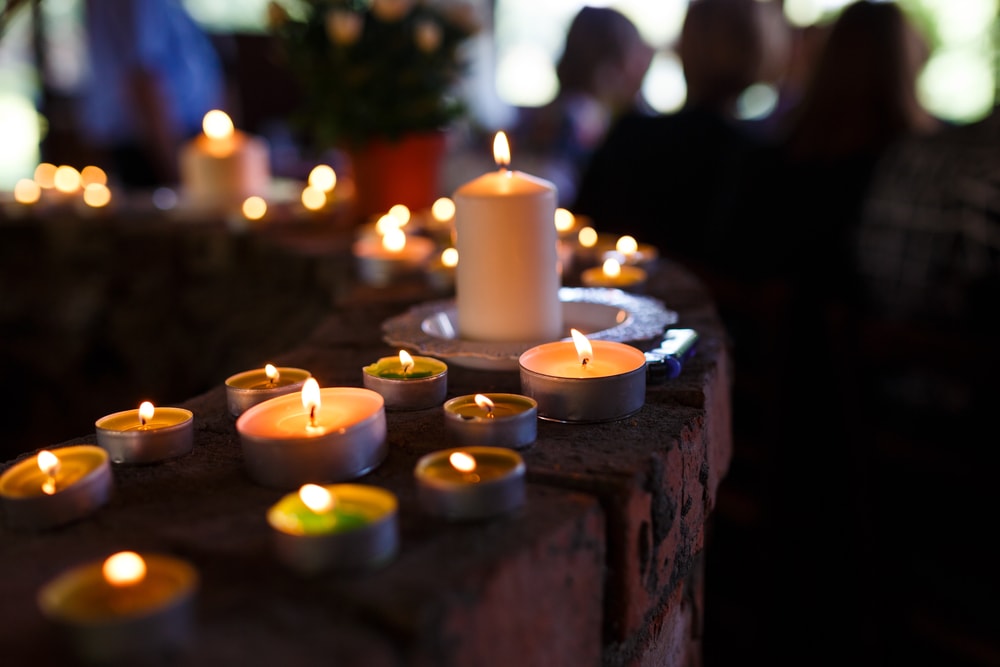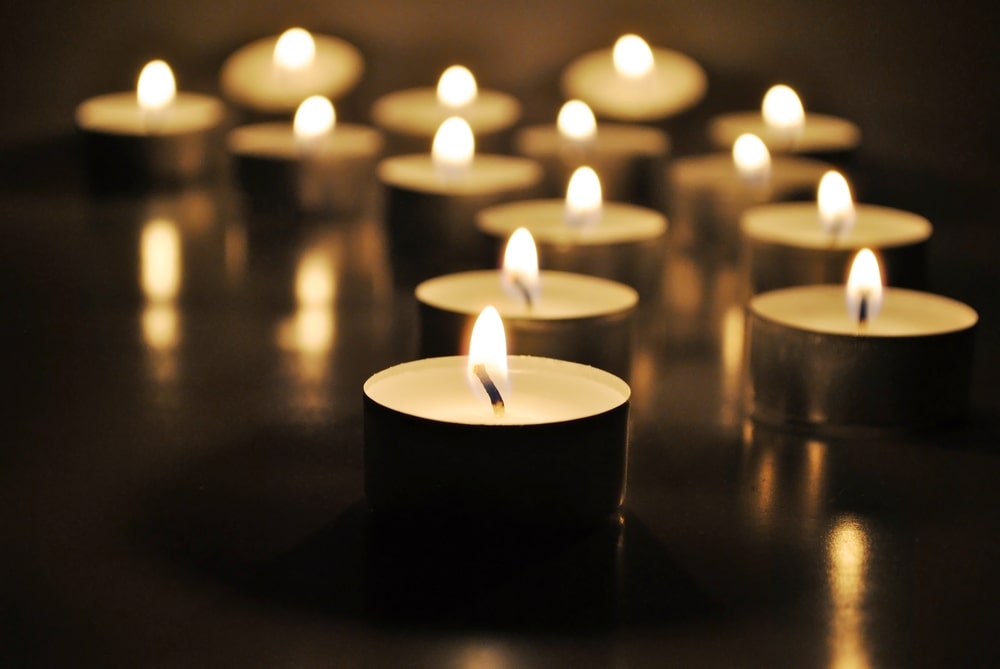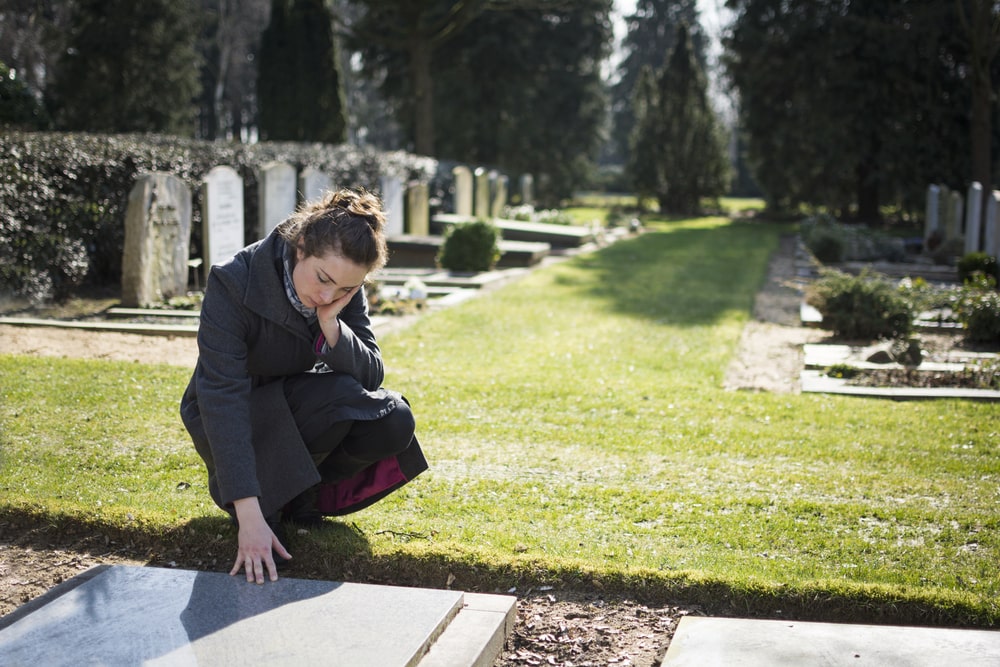A recent study by the Funeral and Memorial Information Council found that nearly 70% of adults over the age of 40 say they would prefer to prearrange their own funeral. However, only 17% had done so. If you are like most adults, you agree that preplanning and prepaying for your funeral wishes is a good idea, but you just don’t know how to get started. As with any financial decision, you probably have questions about the long-term benefits for you and your family. Planning ahead can be an incredible gift of love to those you care about, when it is done correctly. With that in mind, here are a few questions you might consider asking as you work with a licensed funeral planning specialist.

10 Questions to Ask When Prepaying a Funeral
1. How safe are my funeral funds going to be?
Your funds will not go directly to the funeral home. For your safety, the law requires that your payment(s) go to a third-party insurance company or trust account to manage the funds. For example, do not give a blank check to any agent. Your payments should go directly to a third-party rather than an individual.
Before signing anything, look into the safety, stability, and performance of the insurance company or funeral trust account. Do they have a good rating by an independent rating company? Do they have a sound financial outlook? What is their reputation? Does it seem likely that they will be in business for years to come? You don’t want to commit to a prepaid funeral insurance policy or funeral trust unless you have confidence that your funds will be in safe hands. If you are not comfortable with the funding options available, request an alternate option.

2. Can I qualify for a prepaid funeral plan if I have health issues?
There are two standard ways to prepay for a funeral: a funeral insurance policy or a funeral trust. Most funeral insurance policies require you to answer a few basic health questions (funeral trusts do not ask health questions). Your answers to the health questions will determine the type of coverage you are eligible for. In most cases, your health status will not prevent you from setting up a prepaid funeral plan that is right for your situation.
To get specific details about the plans you qualify for health-wise, it’s best to speak with your funeral provider. They can give you more details about the funeral insurance policies that you are eligible to receive or how to set up a funeral trust. In general, some funeral insurance policies are easier to qualify for but offer no insurance protection in case death occurs before your payments are complete. Other plans offer limited insurance for accidental death only, but after a certain amount of time, the policy converts to a fully insured plan that covers the full cost of your plan should you die before payments are complete. Another possible option is a fully-insured policy that covers your plan 100% from day 1 and requires a few basic health qualifications to be met.
Again, your funeral provider can give you more details about funeral trusts, or the funeral insurance policy you are eligible to receive based on your honest answers to the health questions.

3. Can I cancel my funeral insurance policy or trust?
When planning ahead for funeral costs, it’s important to understand the terms of your contract should you decide to cancel at a later date. For a funeral insurance policy, in most states, there is an initial cancellation period. During this period, you can cancel your funeral policy for a full refund within a certain time frame, usually between 3 and 30 days. After the cancellation period passes, your ability to cancel will depend on whether the policy is revocable or irrevocable.
Revocable policies
With a revocable policy, you can cancel the plan at any time to receive the cash value of the policy. Keep in mind that depending on the type of policy you have, you may get back less than the amount you paid in. It’s a good idea to talk to a customer service representative at the insurance company to understand all of your options before canceling your plan.
Irrevocable policies
With an irrevocable policy, you cannot cancel the plan. An irrevocable funeral plan is usually used when an individual wants to spend down funds for Medicaid qualification by creating a Medicaid-exempt asset. Essentially, Medicaid does not consider an irrevocable plan as part of a person’s countable assets. To learn more about how irrevocable plans work, go to “How Can a Prearranged Funeral Plan Help You Quality for Medicaid?”
Funeral trusts
You can also set up a funeral trust as an irrevocable plan to help you qualify for Medicaid. However, revocable trusts are a little different. If you decide to cancel a revocable trust, the amount of your refund will vary from state to state. In some states, a canceled trust may be subject to penalties and the funeral home may have the right to retain a certain percentage of the trust funds. In other states, the beneficiary is entitled to a 100% refund of principal and interest. Always be sure to speak to your funeral provider or a customer service representative before canceling a trust so that you have all the information you need to make a good financial decision.

4. Can the funeral home guarantee any prices in my funeral contract?
Many funeral providers offer guarantees on funeral goods, services, and merchandise provided by the funeral home with a prepaid funeral plan. This usually means that, according to your agreement, the funeral home accepts the death benefit as payment for the price of the items included in the guarantee at the time of death.
For example, let’s assume your funeral options today add up to $6,500. In 20 years, you can expect the cost of those same or equivalent options to have risen by an estimated 2% per year to approximately $9,000. With a price guarantee, the funeral home will accept the policy’s death benefit as payment in full, even if the benefits are less than the then-current funeral cost. And, if inflation doesn’t grow as expected, in most states, the family will receive a refund of any excess death benefits over the then-current price. Guarantees work differently from state to state, so be sure to check the terms of your contract to understand what will happen in case the death benefit is above or below the funeral prices at the time of loss.
Remember, not all states or funeral homes offer a guarantee and not all items are eligible for a guarantee. Additionally, some funeral homes include an added charge to guarantee items. Ensure that you understand what items, if any, are guaranteed and what items are not.

5. How often will I receive correspondence from my account administrator?
Before you sign a prepaid funeral contract, make sure that you read and fully understand the entire document. Once you’ve signed, you will receive a copy of the contract for your records. Also, when the administrating financial institution receives the funds, you will get an acknowledgment letter.
From there, the amount of correspondence you receive depends on the insurance company and/or financial institution and their practices. Some will send a privacy notice when you first sign up, though not all will do so. Some trust accounts will send you annual 1099’s on the growth of your account. In our technological times, the best way to keep up with your account is to register with the company’s website if possible and keep track of your payments there. Alternatively, if you request paper billing statements, you will see your balance on the statement when it arrives every month.

6. Are there any funeral expenses that cannot be included in my funeral contract with the funeral home?
Absolutely not, you can include anything in your plan. However, for Medicaid qualification purposes, only “normal and customary” funeral expenses will be considered exempt assets. Keep in mind, too, that certain items in your plan may involve a third-party provider and are not typically eligible for a price guarantee. These are usually referred to as cash advance items because the payment is advanced to a third-party providing a service, such as a cemetery, florist, newspaper, caterer, or police escort. Because a third party determines the cost of these items, the funeral home cannot typically guarantee them in a contract. However, you can set aside money within your plan for cash advance items. Or, you can let your family know that these expenses will not be covered within your plan. Communication with your family is the key to avoiding unexpected surprises during a time of loss.
7. If something happens, and my total funeral costs are less than what I paid into my prepaid funeral plan, what happens to the leftover money?
Great question. If you’ve done your homework and have partnered with a reputable funeral home and insurance agency, any leftover funds will be given to your beneficiaries.

8. If I move, can I transfer my funeral contract to another funeral home?
It’s important to understand what your options are if you move away or need to transfer your plan. In most cases, you should have no issues transferring a funeral insurance policy or funeral trust to another funeral home. However, any price guarantees or discounts from your original contract may not carry over. If you want to transfer your plan, ask the funeral home of your choice to review your policy.
9. What happens if my prepaid funeral plan hasn’t been paid in full at the time of death?
It depends. With a fully-insured policy, your family will typically receive full death benefits regardless of whether your plan was paid up. However, even fully-insured plans are contestable in the first two years. In cases of suicide or fraudulent information on the application, full benefits will not be paid.
In general, accidental death is fully covered even by limited benefit insurance policies. If the policy has no insurance coverage, your next of kin will receive the current death benefit of the plan. If any expenses still remain, the surviving family members must cover the cost. Funeral trust accounts do not have accidental death or full coverage benefits.

10. Is it possible to make changes to my funeral contract?
If your funeral contract allows it, you can make changes to the goods and services you originally selected. You cannot make changes to the final disposition (burial or cremation). Should you want to change your final disposition, you must cancel your contract and start over. If you want to make changes to your funeral contract, discuss which changes can be made with your funeral provider. Please note, changing your preferences on an irrevocable plan does not mean you can remove money from the plan.
As you decide what questions to ask, the National Funeral Directors Association (NFDA) is also an excellent resource. On their website, they list the important components to look for when signing a prepaid funeral contract. To learn more, click here.
*Also, keep in mind: your next of kin can make changes to the funeral contract after your death in order to meet the needs of surviving family members, unless your state law prevents such changes.



















































